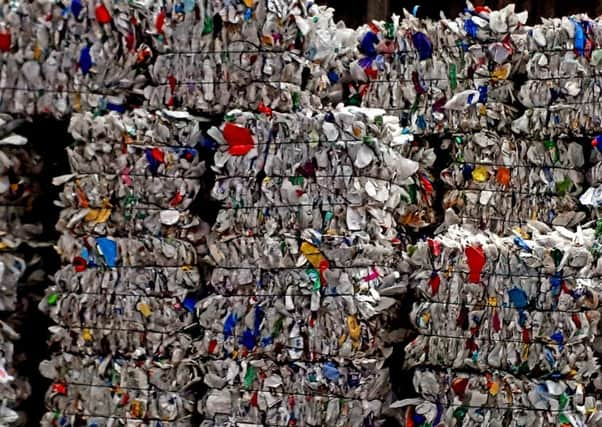LITTERBUGS COLUMN: Visit sheds light on the recycling process


In 2006, Northumberland County Council signed a contract with SUEZ Recycling and Recovery UK for a 28-year waste private finance initiative.
The contract is to divert 92 per cent of waste from landfill by ensuring that at least 45 per cent is recycled and 47 per cent is used to generate electricity. Around 75,000 tonnes of non-recyclable household waste is sent to Teesside each year to be burnt to make electricity. Some 50,000 tonnes are separated and sorted in West Sleekburn.
Advertisement
Hide AdAdvertisement
Hide AdIn your recycling bin put: cardboard and paper, including delivery boxes (not the plastic inside); newspapers, magazines and catalogues (no plastic sleeves); tins, cans and metallic jar lids (clean and dry); aerosols (remove tops); and all plastic bottles with tops screwed on.
The first thing we noticed at the facility was the plastic on the conveyor belts that shouldn’t be there – hundreds of carrier bags, food trays, tissues and shredded paper. There was even a dead pheasant.
Contamination can cost money as they may have to stop the process to clean up. Workers were sorting through the rubbish, not great when dirty nappies and food waste have to be removed by hand.
It’s pointless to study labels to see whether packaging is recyclable. Whilst a meat tray or yoghurt pot might say recyclable, here it is considered low grade and sent for burning. Try to put all plastic bottles in the recycling bin with tops on. All other plastic should go in the general waste.
Advertisement
Hide AdAdvertisement
Hide AdIf you shred paper, it should go in general waste too. It does not recycle well and causes a mess.
Tins and cans should be washed and left to dry before putting in the bin. No organic matter should ever be put in a recycling bin.
Glass and large items should be taken to a waste recovery unit.
It is better to avoid landfill by recycling, but reducing plastic use is still better for the planet. Burning plastic to make electricity also produces waste. Reduce, Reuse and Recycle, in that order.
Advertisement
Hide AdAdvertisement
Hide AdGet in touch on Facebook or email [email protected]
Thanks to the volunteers who turned up at Warkworth Beach Clean on February 10. Around 40 of us managed to get rubbish from the North Side. Find details of upcoming beach events at www.coast-care.co.uk